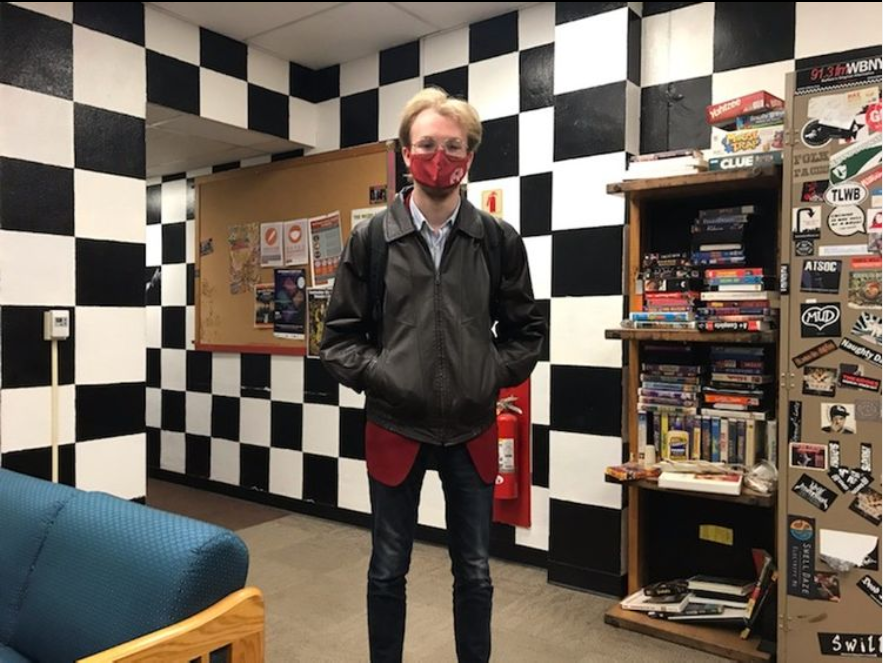The president of Turning Point USA Buffalo State chapter’s thoughts on Critical Race Theory
Alexander Kolasny, the president of Turning Point USA Buffalo State chapter
November 22, 2021
The Record spoke with the president of Turning Point USA Buffalo State chapter, a conservative-leaning organization that values free speech and has yet to be officiated by the United Students Government, on his thoughts on Critical Race Theory.
Alexander Kolasny, a senior at the State University of New York at Buffalo State College and peer minister at the Newman Center, says that he is “personally not a fan of Critical Race Theory,” as someone who plans on being an educator.
“With CRT, there is a little bit more of them telling you the narrative even though the narrative is contradictory a lot of the times to the historical things that have actually happened,” the social studies education major said. “It also degrades the value of how people perceive themselves because with CRT, you’re stripping down the person to their associated labels that they are asserting for themselves rather than talking and teaching to the student that’s in front of you.”
Kolasny, who does not believe in white privilege, argues that as a straight white man, he feels that he is a main target for those who implement it.
“When it comes to CRT, they want to blame all the white people for the problems in the world, and they want to say that all the white people have these implicit biases against everyone else,” he said.
Kolasny argues that it teaches that implicit biases are formed from the moment that “the baby is conceived in the womb.”
According to him, CRT rewrites history and ignores historical documentation, and focuses on victimhood, rather than focusing on the victors’ accomplishments.
Kashmir Bowser, a student majoring in anthropology and minoring in Indigenous Studies says that one of the things that CRT teaches is that it calls out “the Thanksgiving myth.”
Bowser said that when the settlers arrived, the Native Americans taught them how to cultivate the land because they didn’t want them to starve to death.
“Indigenous people’s land was taken from them by those settlers and it is something that is ongoing today,” she said. “It’s really important for Indigenous people to have their ancestral homeland,” she said.
Barish Ali, who has a doctorate in comparative literature, finds it crucial to incorporate CRT in his lessons as an English professor at SUNY Buffalo State College.
“[CRT] provides us with the tools we can use to analyze the past, but more importantly, how we can shift policy to create equity and freedom for everyone in this country,” he explained.
However, Kolasny disagrees and says that it pushes for “false indoctrinations.”
“They want this false sense of equity in the classroom where you’re not being valued as an individual, you’re being valued as all the individual titles and labels that you can assess, so you’re not being also graded on the product you’re creating,” he said.
Using a metaphor of writing a paper, he says that the quality of the paper itself is no longer valued, but rather the obstacles that the author of the paper who wrote it had to overcome that determines the grade.
What Kolasny is referring to is minority race privilege.
More to come on this topic soon!
The Record wants to know your thoughts on the critical race theory debate. Let us know in the social media comments!





Joseph Flading • Mar 3, 2022 at 10:39 pm
Great article Cait!
I shudder to think that such assumptions as Mr. Kolasny asserts (without substantiating) might be taken as empirical fact, especially considering he does not seem to comprehend that CRT benefits all members of society, as understanding and subverting the structural mechanisms which oppress minorities also raises the bottom line, and consequently the quality of life for all Americans. I think the presence of such straw men as described in the paper writing analogy is especially worrying, and I fear that emboldening more people to speak on subjects so far out of their realm of expertise is frightening.
Perhaps we need to stop handing out soap boxes to every Charlie Kirk that pops up!
Thank you for illuminating these perspectives!
James Speaker • Nov 23, 2021 at 1:39 pm
Critical Race Theory is largely a boogeyman issue that conservatives use to prevent working class Americans from having genuine discourse on tangible, important issues like healthcare, wages, and infrastructure. Thus, it’s not too shocking to know that Turning Point USA is largely funded by conservative billionaires who couldn’t care less about what material is being taught in classrooms; rather using Critical Race Theory to rile up insecure white voters behind the idea of a faux-traditionalist society to use them to vote for Republicans who, in turn, will legislate in ways which benefit said billionaire class.
As Ben Shapiro says, “facts don’t care about your feelings”.